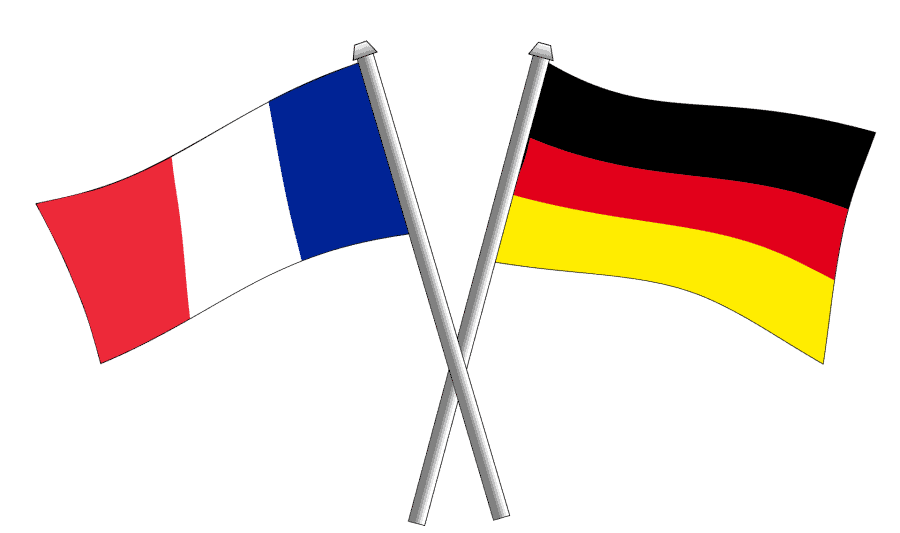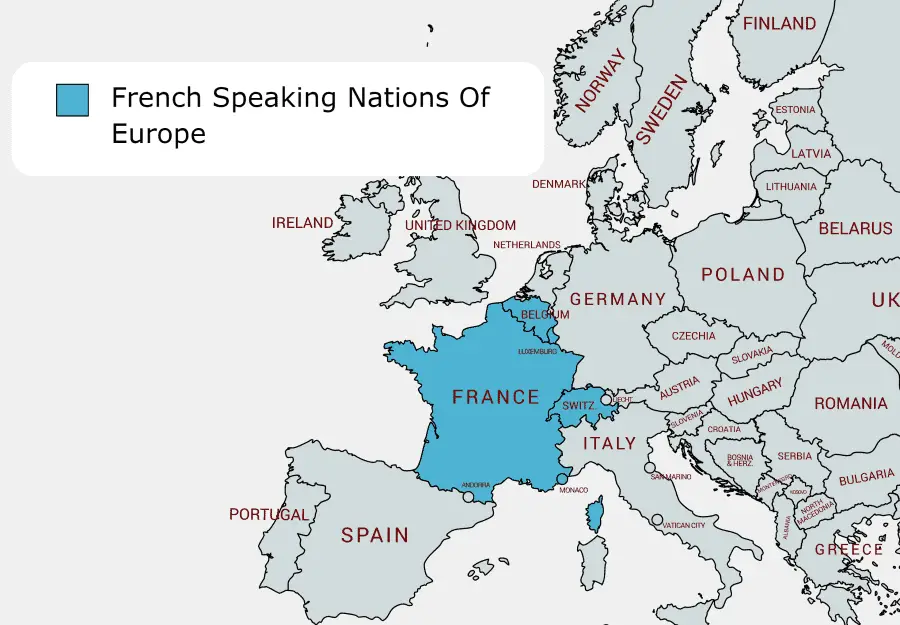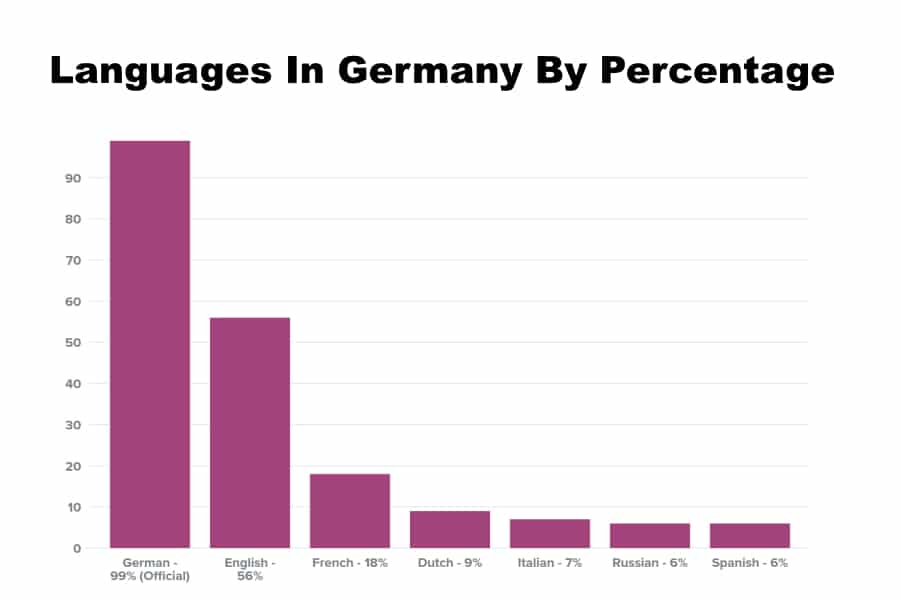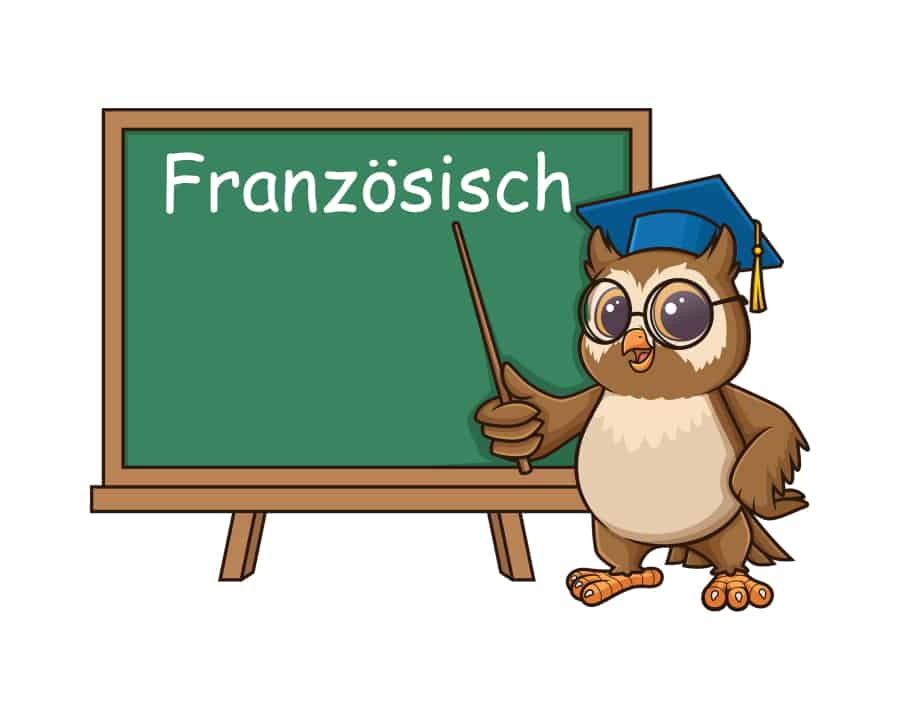Germany has a long and rocky history with France, its people, and the varied governments that ruled them. Yet, as neighbors for the past nearly 100 years since their last major conflict they have shared travel, trade, and language. Just how common is spoken French in Germany then?
French is not widely spoken in Germany and when used, it is usually by second language learners with varying degrees of proficiency. With 18% of people speaking French in Germany at some level it would mean that 1 in 5 people you meet randomly would have some use of the language.
We will look into the reasons for this, how pervasive the French language is in Germany, and where to find it in this article. If you are interested in French, Germany, or languages in general this is an interesting example of shared language and one culture experiencing another.

Contents
- 1 How Widely Spoken Is French In Germany?
- 2 Languages Spoken In Germany
- 3 Can You Get By Only Speaking French In Germany?
- 4 Where In Germany Is French Widely Spoken?
- 5 Do They Teach French In German Schools?
- 6 Does French Show Up On German Street Signs?
- 7 Is French On German Television And Movie Screens?
- 8 Is French Used In The German Workplace?
- 9 Are French And German Similar?
- 10 The Final Talking Point About How Common French Is In Germany…
How Widely Spoken Is French In Germany?
Though French is spoken to some degree by a percentage of the German population, it is not a dominate language in the country by any means. It is spoken passably by some and learned in a classroom setting by many.
French is not commonly spoken in Germany with 14,927,025 people speaking it out of 82,927,922. Though this number constitutes 18% of the German population, it is made up of many learners of French and those with little ability with the language past basic standards.
This is evidenced by the low number of French nationals living in the country and the high number of students in secondary and post secondary education studying it and adding to the statistics.
Our experience visiting Germany many times, though admittedly anecdotal, had us convinced that most Germans speak English far better than English speakers speak any other foreign language. English tends to be the second language of choice in use and study for Germans. French has a place, but more in an academic sense.
French in Germany
The peoples in what we now see as German lands have had conflict with the governments and cultures of the ‘Franks’ for millennia. From the early conquests of the lands of Gaul by Rome in 50 BC, the Germanic peoples have resisted, though mostly disjointedly, the conquests, coercion, and succession by the ancestors of today’s French.
The other side of the coin also was true. The Francs under Charlemagne had to contend with constant incursions of Germanic tribes and their tendencies toward human sacrifice to a pantheon of deities. Then came the battles and occupations of WWI and WWII which forever left scars on both countries and cultures.
Today, after nearly 100 years of peace between the two nations, citizens of each take holidays and work in each others lands freely. Due to the connection of the EU citizens can move freely between each country without much problem.
This allows for movement of peoples speaking French into Germany and an increased desire of German students to learn the French language.
French in Europe

The nations of Europe with native to high levels of French besides France are direct neighbors. Though Germany is a direct neighbor, high levels of national identity and strong language regulation within the government and schools makes Germany strongly resistant to French language infiltration.
Even among the other countries of Europe that have high levels of the French language, most like Switzerland and Belgium only have one third to one half of their populations speaking the language as their primary mode of communication.
Though French was once the language of the aristocracy from England to Russia, today it struggles to hold a top 5 position in the most influential languages of the world. It is an official UN language, but so are Arabic, Chinese, English, Russian, and Spanish.
Languages Spoken In Germany
How does French stack up in Germany when compared to others? There are several languages that have a presence in this country of many bilingual people.

French is the third most spoken language in Germany after English and German. It is followed by Dutch with its influences from the neighboring Netherlands. Rounding out the top list is Italian, Russian, and Spanish. Though French is more popular, it lags behind English exponentially.
Though French is studied in school it is much less so than English. French has an academic place in Gymnasiam (German college-prep high school) and university levels, but not as much in popular use. There are exceptions in areas within a few hours train ride from French speaking portions of Switzerland and France.
How Many Languages Are Spoken In Germany?
There are a lot of languages spoken in Germany though only one official language. All of them have regions of use and different levels of popularity. There are immigrant, border, and educational motivations for most of them along with regional cultural usage.
There is one official language in Germany (German). There are over 8 minority languages spoken and 10 plus immigrant languages. Add to this the second languages studied and the number used in Germany easily reaches into the dozens. Some are used daily, some for work, and many in education.
The immigrant languages of Germany are interesting studies in themselves. According to BMI there are several officially designated minority languages in the country. A speaking partner of my husband for many years also spoke a regional dialect of German associated with Southern Germany. Bayerisch and many others dot the rural areas.
What Percentage of Germany Speaks French?
Of all of these languages, French is the second most commonly spoken foreign language in Germany. It is the language of their neighbors to the south and west so it is little wonder that there is some crossover.
French is spoken in Germany by 18% of the population. This includes immigrants, foreign nationals, and second language learners. What this does not connotate is the proficiency level of each of these French speakers which means that some may have conversational abilities and some may not.
If you are looking for French language presence on a conversational level you may need to be within a few hours train ride of the French border. If you are interested in merely those studying the language, then they will be spread all over the country as it is studied in secondary and post secondary classrooms.
How Many Speak French In Germany?
The total number of French speakers in Germany include many groups. There will be immigrant French speakers from other countries, French speaking foreign nationals merely working and staying for a specified time, and language learners for many reasons.
The total population of the Germany is 82,927,922. With 18% of the total population having some form of French language skill, the number of French speakers in Germany is 14,927,025. Some of these include visitors like tourists on long stays and the 141,000 French foreign nationals.
These numbers of French foreign nationals in Germany are just part of the story. These are documented with many more coming illegally from African and Middle Eastern French speaking countries each year.
As immigration from these and other countries increase in Germany, more and more French and other language speakers will add to these numbers.
One thing to keep in mind concerning Germany…
German schools and government offices require the German language to be spoken as well as many businesses for service, employment, or study.
Can You Get By Only Speaking French In Germany?
This question is asked about two main languages besides the immigrant languages of Arabic and Turkish. English and French being the most spoken languages besides German lead some to question whether German is necessary for traveling, living, or working in Germany
It is unlikely that smooth travel, day to day living, or working in Germany can be accomplished with only French as a language. German is required in schools and most workplaces and necessary in most governmental offices. English is widely spoken and can be used day to day, but French is not.
Though one in five people you meet will have some sort of French skill, it is more likely that you will find the one in two that have conversational English. French would be difficult to use in most German areas. This can even be slightly challenging for English speakers, but French would be impractical.
If you would like to know more about the French language I recommend some of my other articles…
- Is French Fun To Learn?
- How Common Is Spoken French In Belgium?
- How Common Is Spoken Frennch In Canada?
Where In Germany Is French Widely Spoken?
If nearly one in five people speak some level of French in Germany, where are they found? There is a way to locate them with more certainty if you know who to look for.
French is spoken by younger Gymnasium students and Uni students as well as those near the border with France. Much of the French in Germany will be on a lower level unless it is from French foreign nationals, immigrants, or advance university students majoring in the French language.
Besides this, you can be sure to find more French in more populated areas since business, tourism, and job opportunities are some of the main draws for French speaking immigrants and expats. Let’s look at some of the major cities that will give more of a chance at finding French speakers.
Berlin
(Population 3,426,354)
The capitol city of Germany is a truly international city. It is host to languages and cultures from around the world. You will find Turkish, Spanish, French, and even English (American and British) spoken all over the city.
French will have its enclave and with some Berliners speaking French themselves, it is a much better bet to find it there than in other cities or towns. International trade, politics, and education are all centered in Berlin and contribute to the inviting atmosphere for French and other languages.
The Humboldt-Universität zu Berlin is one of the largest universities in the city with 32,500 students and hosts a variety of languages and cultures. French will be more apt to be found here than other places.
In our several trips to Berlin, my husband Mat would regularly talk to people in and around the Humboldt campus and the alte Stadt (old city). He would hear languages from all over with French being one of them. It was much rarer than English for sure, but it can be found if one is determined.
Stuttgart
(Population 589,793)
Stuttgart is an affluent city with its hands in the lucrative auto engineering and manufacturing market of Germany. The populace is rather educated so you will find many that have at least an academic knowledge of French. With education and the auto industries of Germany having global reach, it is little wonder.
The Universität Stuttgart is a leading research university in the heart of Baden-Württemberg that hosts international students from around the world. These connections bring French speaking students and researchers as well as spur German nationals to learn the language.
When Mat went to Stuttgart with his sister and our daughter Lexi, they saw French bistros and French sections in bookstores, but didn’t notice French being spoken openly. This doesn’t mean it wasn’t present, only that it may take some digging to find it.
Heidelberg
(Population 143,345)
Heidelberg hundreds of years ago was at the center of French conflict with German nobles, the site of the beginning of the thirty years war between Protestants and Catholics, and home to one of the most important renaissance structures in Europe: Heidelberger Schloss (Heidelberg Castle).
This castle, now in ruins, was partially destroyed by French cannon fire and partially by French arsonists. It stands upon the hill overlooking the alte Stadt (old town) as a testament to the history between France and Germany.
The Universität Heidelberg with its 30,800 students makes up a sizable portion of the cities population. This academic environment combined with geographic location and a long history connecting the city with France makes finding French a possibility.
Mat traveled to and stayed in Heidelberg and did notice French architecture, influences, and other remnants from history, but French was not openly spoken. This is partly due to the laser focus of the German government to promote the German language to its people and a general sense that many people there spoke several languages.
It is German that you will first speak with locals in, but if they detect an accent many will attempt to speak to you in your native tongue. If that happens to be French, there is a good chance some will converse with you in it.
Do They Teach French In German Schools?

Is French a mandatory subject for German children in public schools in Germany? What about study in universities?
Latin and French are studied in lower grades before English is taken in upper levels. German is the official and main language of most German children in public education, but French is studied by the vast majority of them even if a conversational level is never reached.
As most that have studied languages in public and even private schools can attest, it is rare indeed if learning to speak a language from that type of instruction is a feasible outcome. This could spur future study of the language, but actual conversational skills are not the norm.
Our daughter spent a year in Germany as an exchange student in a local Gymnasium. What she found were many students willing to help her with her German, most that could speak very good English, and not many with French language skills.
Does French Show Up On German Street Signs?
Most all European countries, and others around the world for that matter, have forgone the use of most text commands for street and road signs. Other than street or city names, most directions or cautions on these are done in symbols and pictures.
French does not appear on German street or road signs even in areas near the French border. One reason is the strict guidelines the German government puts on the use of German as its official language. The other is the lack of text in general on most of these signs.
Since this is the case, most any speaker of any language can use these signs with a few simple and fairly universal symbols under their belt.
Is French On German Television And Movie Screens?
Germany is unique in their adaptation of foreign cinema and television. They use a hybrid approach of dubbing and showing media in its original language with subtitles.
German movies and tv shows are nearly all dubbed into German. Yet, many foreign films will also be shown on separate screens in their original language with subtitles. The German television programing on free television is nearly all dubbed, but paid programming leaves some in its original form.
On our many trips to Germany we have seen movies in English with subtitles in German while in the next theater the same film was playing in dubbed German. This happens for French films as well. Exceptions can be found, but many German movie houses and television stations follow these formats.
Is French Used In The German Workplace?
German is a highly prized and even mandated language in Germany by the government, educational institutions, and even many businesses large and small. It is important to the German people to keep their sense of national identity and not let it be tread upon due to past reactions.
French is not commonly spoken in the German workplace. Proficiency in German is an important element of any job application. The government has German proficiency standards for work applications for foreign nationals. French may be used in tourist or international business environments.
Though it is not common, that doesn’t mean it is not used in some way. There are language schools, teachers in public and private institutions, international business, governmental agencies, tourist industry employees, and others near the border. French can be found in the German workplace, it may just be hard to find.
Are French And German Similar?
Being neighbors and sharing a long and interesting history together leads many to wonder if the languages of France and Germany share similar roots, vocabulary, or structure. So, are French and German similar?
French is not very similar to German in that it is a Latin based language and German is a Germanic derivative. There is little in the way of similarity in structure and vocabulary between the too root forms. Though, each language over time has borrowed quite a bit of vocabulary from one another.
This shared vocabulary is a good place for speakers of one to begin learning the other. To be honest, this will only be a slight help in the beginning as a vocabulary base is established.
Other grammatical aspects and vocabulary will be quite different and no real advantage will be had from knowing one or the other.
The Final Talking Point About How Common French Is In Germany…
That is the rundown of how widely spoken French is in Germany. The verdict is: not very.
Beyond that there are actually quite a few people that do have some level of French either from public schools or private second language learning. These will not be reliable sources of French for those that need assistance or to do business.
Germany has a strict policy on immigrants and citizens alike speaking German in the workplace, schools, and in all forms of government. Even though 18% of the population has some level of French, the German society is a hard nut to crack for language and culture.
If you would like to read more about the French language then see my other articles…
